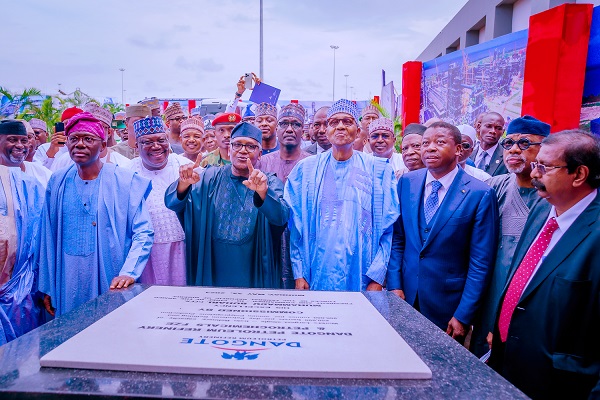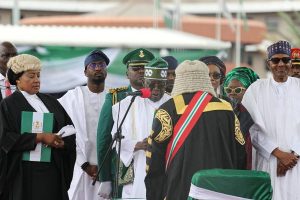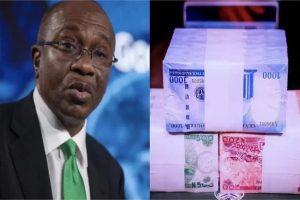Outside politics, the most significant single event in 2023 with the potential to impact every citizen was the commissioning of the Dangote refinery located at the Lekki Free Trade Zone in Lagos in May. The ceremony was performed by the then outgoing President, Muhammadu Buhari, with several other African Presidents or their representatives in attendance.
The inauguration of the refinery brought high expectations in the Nigerian energy sector amid plans by the Nigerian government to remove petrol subsidy in the second half of the year. The government pinned its hopes of ending fuel imports largely on the completion of the Dangote refinery.

In 2021, the federal government had given the state oil firm, NNPC Limited, approval to buy a 20 per cent stake valued at $2.76 billion in Dangote Refinery, indicating a significant shift in government attitude.
Built by Africa’s richest man, Aliko Dangote, the massive complex is one of Nigeria’s single largest investments. It has a 435-megawatt power station, deep seaport and fertilizer unit.
The refinery has the capacity to meet 100 per cent of the Nigerian requirement of all refined products with surplus for export. It is designed to process Nigerian crude with the ability to also process other crudes.
The refinery would produce Euro-V quality gasoline and diesel, as well as jet fuel and polypropylene. The refinery is also expected to create a market for the $1 billion per annum Nigerian crude, in addition to foreign exchange earnings of $9.9bn.
In a report titled “Refineries watch Q4 2022” Hawilti, a Pan-African investment research firm, had said that the prospect of the new private refinery becoming operational could help redefine the nation’s local refining capacity.
“Both the opening of the Dangote refinery and the rehabilitation of state-owned refineries have the potential to make Nigeria Africa’s biggest refining hub by 2025.
Subsidy payments steadily rose from N351bn in 2005 to N4.39 trillion in 2022, while N3. 6trn was earmarked to fund fuel subsidy for the first six months in 2023.
“With all state-run refineries undergoing rehabilitation, Nigeria imports all its petroleum products and heavily subsidizes gasoline. It needs the Dangote Refinery to decrease imports, generate currency savings, fight inflation, and ultimately improve its macroeconomic outlook,” it said.

The International Monetary Fund (IMF) projected that the Dangote Refinery would help Nigeria’s economic recovery drive when it starts production.
“With crude oil for local refining not subject to the Organisation of Petroleum Exporting Countries (OPEC) quota, the refinery also has the potential to catalyse more domestic crude oil production and boost gross domestic product (GDP),” IMF said.
Subsidy payments steadily rose from N351bn in 2005 to N4.39 trillion in 2022, while N3. 6trn was earmarked to fund fuel subsidy for the first six months in 2023. The government had pinned its hopes of ending fuel subsidy and imports largely on the completion of the Dangote refinery.
In anticipation of the arrival of the refinery’s first batch of crude supplies in June, subsidized were officially withdrawn by the new Government of President Tinubu. But the supplies came about six months later in December, meaning that the high expectations that heralded the commissioning of the project will be realized in 2024.






